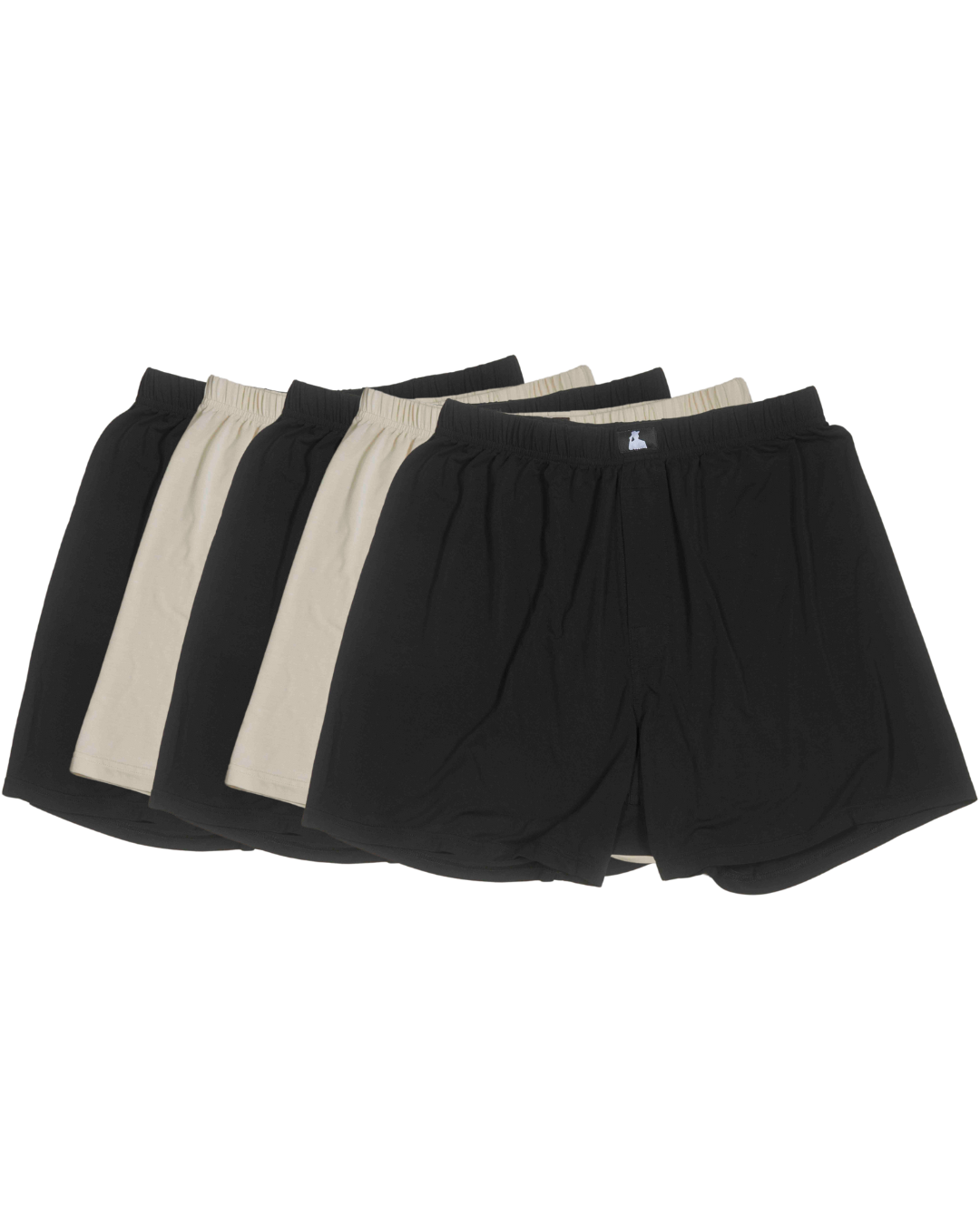The Surprising Benefits of Cloves Sexually: Natural Support for Male Vitality
Written By The Mr. Fertyl Research & Education Team
Clove (the dried flower bud of Syzygium aromaticum) is a spice renowned for its rich antioxidant content and use in traditional medicine. Historically, cloves have been valued in systems like Ayurveda and Unani for their supposed aphrodisiac and fertility-enhancing properties [1][3]. Modern research is now shedding light on how this fragrant spice may benefit male reproductive health – from improving sperm quality and libido to supporting testosterone levels – all while providing potent antioxidant, anti-inflammatory, and antimicrobial effects. Notably, these benefits align with a hormone-safe, sperm-protective, and eco-conscious lifestyle that emphasizes natural wellness solutions.
Cloves in Traditional Medicine for Sexual Health
Cloves have been used for centuries as a remedy for male sexual disorders. In Unani medicine, for example, clove bud was a key ingredient to treat issues like erectile dysfunction and low libido [1]. Ayurvedic texts similarly praise cloves as an vajikarana (aphrodisiac) spice. Such traditional use is supported by early scientific studies: a 2004 animal study found that clove extract significantly and sustainably increased sexual activity in male rats, without notable side effects [1]. Treated rats showed more frequent mountings and intromissions (measures of libido and potency) and quicker recovery after ejaculation, confirming clove’s aphrodisiac reputation [1]. These findings lend credence to folkloric claims and set the stage for deeper investigations into clove’s fertility benefits.
Effects of Clove on Sperm Quality and Fertility
Healthy sperm function is critical for male fertility, and research indicates that cloves can positively influence several sperm parameters. In animal models, low doses of clove bud extract improved sperm quality – boosting sperm motility (movement), enhancing sperm morphology, and even increasing mating success. In one study, mice given a small daily dose (15 mg/kg) of clove bud extract showed higher sperm motility and increased secretions from the epididymis and seminal vesicles (accessory glands that help sperm function) [2]. These mice sired more offspring, suggesting improved fertility, whereas higher doses (30–60 mg/kg) had the opposite effect [2]. The researchers concluded that clove produces a dose-dependent “biphasic” effect: a low dose is beneficial – even androgenic – while high doses impair sperm production and fertility [3]. This was echoed by a later study where only the lowest tested dose of clove extract enhanced male mice’s reproductive outcomes, whereas larger amounts reduced sperm counts and damaged testicular tissue [3].
Other research underscores clove’s sperm-protective potential. In a reproductive biotechnology experiment, adding clove bud extract to a semen preservation medium markedly improved post-thaw sperm viability and motility in ram semen [4]. Clove’s antioxidant power was higher than even vitamin E in this context, helping shield sperm cells from oxidative damage during freezing [4]. However, more wasn’t necessarily better – excessive clove extract (above 75 µg/mL) began to harm sperm, again highlighting that moderation is key [4]. Taken together, these studies suggest that incorporating cloves in small, dietary amounts may support sperm health and male fertility, whereas extremely high doses or concentrated extracts could be counterproductive.

Cloves Might Help Your Drive… But What About Your Drawers?
Shop Fertility-Safe Underwear.Hormonal Effects: Testosterone and Libido
One way cloves may bolster male reproductive health is by influencing hormones and sexual drive. Testosterone is the primary male sex hormone for sperm production and libido, and there is evidence that clove can support healthy testosterone levels. In a controlled trial on mice, a low oral dose of clove extract led to a significant increase in serum testosterone, accompanied by higher activity of testicular enzymes involved in hormone synthesis [3]. These hormonal changes coincided with improved sperm morphology and motility and greater fertility, as noted above. By contrast, higher doses of clove extract actually reduced testosterone and disrupted spermatogenesis [3]. This dual effect reinforces the importance of dosage – low-level clove intake appears to have an androgenic, pro-fertility effect, whereas large doses can exert anti-androgenic effects.
Clove’s impact on libido and sexual performance has also been documented. Animal studies demonstrate pronounced aphrodisiac effects: male rats given clove extract exhibited increased mounting frequency, reduced latency to ejaculation, and more erectile reflexes, without signs of toxicity [1]. In fact, the highest tested dose of clove (500 mg/kg in rats) produced the most significant improvement in sexual behavior indices, comparable in some measures to the effects of sildenafil (Viagra) used as a positive control [1]. Importantly, the clove-treated rats did not suffer gastric irritation or other side effects in that short-term study [1]. These findings suggest that cloves may enhance libido and sexual potency, validating traditional claims of clove as a natural virility booster.
That said, not all components of clove are universally beneficial at all levels. Eugenol, the chief bioactive compound in clove, has complex effects on male reproduction. While eugenol is an antioxidant (discussed below), high doses of pure eugenol can adversely affect male physiology. A recent study in rats reported that 20–40 mg/kg of eugenol for 60 days significantly lowered testosterone levels and sperm motility, despite reducing oxidative stress markers in the testes [5]. All eugenol-treated groups showed some decline in sperm function, suggesting that concentrated eugenol on its own may impair fertility [5]. This does not mean that normal culinary use of cloves is harmful – the doses in that study were pharmacological – but it underscores that balance is important. Whole clove in moderate amounts contains eugenol along with other compounds that might collectively support fertility without the negative effects seen with isolated high-dose eugenol. Overall, the evidence points to cloves being hormone-safe and potentially hormone-supportive when used appropriately, whereas extreme intake or purified constituents could disrupt endocrine balance [3][5]. Men seeking to harness clove’s benefits for libido or hormonal health should therefore use it as a spice or supplement in prudent doses, consistent with a healthy diet.
Antioxidant and Other Health Benefits Tied to Sexual Wellness
Cloves are often hailed as a “champion” spice in antioxidant capacity, and this has broad implications for overall health and male fertility. Oxidative stress – an imbalance of harmful free radicals and the body’s ability to neutralize them – can damage sperm DNA, impair sperm motility, and lower male reproductive potential. Clove is exceptionally rich in phenolic compounds like eugenol, eugenol acetate, and gallic acid, which endow it with remarkable antioxidant power [8]. In fact, among a comprehensive analysis of 3,100 foods and herbs, clove ranked number one in antioxidant content, far above other spices and superfoods [9]. This means that even small quantities of clove can deliver a strong dose of antioxidants. By scavenging reactive oxygen species, clove’s antioxidants help protect cells – including sperm and the tissues of the reproductive tract – from oxidative damage. This protective effect was evident in the sperm preservation study mentioned earlier, where clove outperformed vitamin E in safeguarding sperm during freezing [4]. Antioxidant support is likely a major mechanism behind many of clove’s pro-fertility and pro-sexual effects, as healthier sperm and endocrine function are maintained when oxidative stress is kept in check.
Beyond its antioxidant prowess, clove exhibits anti-inflammatory and antimicrobial activities that contribute to a healthier body and reproductive system. Chronic inflammation (for example, due to infections or metabolic disorders) can negatively affect testosterone production and sperm parameters. Clove’s natural anti-inflammatory effects – mediated largely by eugenol – may help reduce such inflammation. Research shows that eugenol has notable anti-inflammatory action, even comparable to NSAID drugs in some models, by inhibiting inflammatory mediators and enzymes [7]. Clove’s oil has even been used in topical form to alleviate inflammatory pain (like toothaches), underlining its inflammation-calming capacity.
Likewise, clove’s broad-spectrum antimicrobial properties support sexual health indirectly by preventing and fighting infections. Clove and its oil have demonstrated potent activity against various bacteria, fungi, and even viruses [7]. For instance, clove’s eugenol has been shown to inhibit bacteria such as Staphylococcus aureus (including antibiotic-resistant strains) and to combat fungal pathogens like Candida [7]. In traditional terms, a man whose body is less burdened by infections or inflammation will be in a better state for reproduction and sexual function. While cloves are not a cure-all, their antimicrobial and anti-inflammatory actions promote overall wellness. The spice has even been noted to help with digestion and to act as a carminative (relieving gas) and antispasmodic, which align with general health benefits that keep the body in balance [1].
In summary, here are some of the key health properties of cloves that make them a boon for a fertility-friendly lifestyle:
- Antioxidant Effects: Cloves have the highest antioxidant capacity of any common food or spice [9]. These antioxidants protect sperm and reproductive organs from oxidative stress, which is a known factor in male infertility. By neutralizing free radicals, clove’s antioxidants help maintain DNA integrity in sperm and support healthy testicular function.
- Anti-Inflammatory Action: Eugenol in cloves exhibits significant anti-inflammatory activity, comparable to analgesic drugs in certain studies [7]. This can help soothe internal inflammations; for example, reducing testicular or prostatic inflammation may in turn support better hormone production and sperm quality. Lower systemic inflammation also contributes to improved cardiovascular health and energy levels, indirectly benefiting sexual wellness.
- Antimicrobial Properties: Clove’s natural oils are powerfully antimicrobial, inhibiting a range of harmful microbes. Historically, clove was used as a preservative and to treat infections – modern studies confirm it can suppress bacteria, fungi, and viruses [7]. For men, this means cloves might help fend off infections that could affect reproductive health (such as UTIs or sexually transmitted microbes) and promote overall immune health.
- Nutrient Content: Cloves pack important nutrients like manganese, magnesium, and vitamin K in small doses [10]. Manganese, in particular, is essential for antioxidant enzymes and testosterone production. While one would consume cloves in moderate culinary amounts, their nutrient contribution is a healthy bonus to consider as part of a balanced diet.

Optimizing Fertility Takes More Than Just Spices.
Explore Fertility-Friendly Underwear.Conclusion
From traditional herbal texts to cutting-edge laboratory research, cloves emerge as a promising natural ally for male reproductive health. They can enhance libido and sexual performance (as seen in animal models), improve sperm motility and integrity, and even support hormonal balance – all while offering antioxidant and anti-inflammatory protection that guards one’s overall well-being. Importantly, these benefits are best achieved with moderate use of clove. Both ancient wisdom and modern science caution that more is not always better: extremely high doses or concentrated clove extracts may disrupt the very processes we seek to aid, whereas small, regular amounts – such as those used in cooking or as a mild supplement – appear to be safe and potentially beneficial [3][5].
It’s worth noting that most evidence for clove’s fertility perks comes from animal and in vitro studies. Rigorous clinical trials in humans are still limited, so we should be careful not to overstate the effects in men’s everyday life [6]. That said, the consistency of positive findings across multiple studies and the long history of dietary clove use provide confidence that incorporating cloves into a health-conscious routine is a wise choice. For a man focused on a hormone-safe, sperm-protective, and environmentally aligned lifestyle, cloves check all the boxes: they are natural, plant-based, free of endocrine-disrupting chemicals, and sustainably sourced from an evergreen tree. Sprinkling antioxidant-rich clove powder into your meals or enjoying it in herbal teas is a simple, eco-conscious way to bolster your body’s defenses and reproductive health. In combination with other healthy habits – from good nutrition and stress management to wearing fertility-friendly, non-toxic clothing – cloves can play a part in naturally enhancing male fertility and sexual vitality.
- Tajuddin et al. (2004). Effect of 50% ethanolic extract of Syzygium aromaticum (L.) Merr. & Perry (clove) on sexual behaviour of normal male rats. BMC Complementary and Alternative Medicine, 4:17. Source.
- Mishra RK & Singh SK. (2013). Reproductive effects of lipid soluble components of Syzygium aromaticum flower bud in male mice. J. Ayurveda Integr. Med. 4(2):94–98. Source.
- Mishra RK & Singh SK. (2016). Biphasic effect of Syzygium aromaticum flower bud on reproductive physiology of male mice. Andrologia, 48(9): 923–932. Source.
- Baghshahi H et al. (2014). Antioxidant effects of clove bud (Syzygium aromaticum) extract used with different extenders on ram spermatozoa during cryopreservation. Cryobiology, 69(3): 482–487. Source.
- Carvalho RPR et al. (2022). Eugenol reduces serum testosterone levels and sperm viability in adult Wistar rats. Reproductive Toxicology, 113: 110–119. Source.
- Taghipour Z et al. (2023). The Effects of Clove and Its Constituents on Reproductive System: A Comprehensive Review. Reproductive Sciences, 30(9): 2591–2614. Source.
- Batiha GE et al. (2020). Syzygium aromaticum L. (Myrtaceae): Traditional Uses, Bioactive Chemical Constituents, Pharmacological and Toxicological Activities. Biomolecules, 10(2): 202. Source.
- Cortés-Rojas DF et al. (2014). Clove (Syzygium aromaticum): A precious spice. Asian Pac J Trop Biomed, 4(2): 90–96. Source.
- Carlsen MH et al. (2010). The total antioxidant content of more than 3100 foods, beverages, spices, herbs and supplements used worldwide. Nutrition Journal, 9:3. Source.
- Cleveland Clinic. (2023). Do Cloves Have Any Health Benefits?Cleveland Clinic – Health Essentials. Source.

